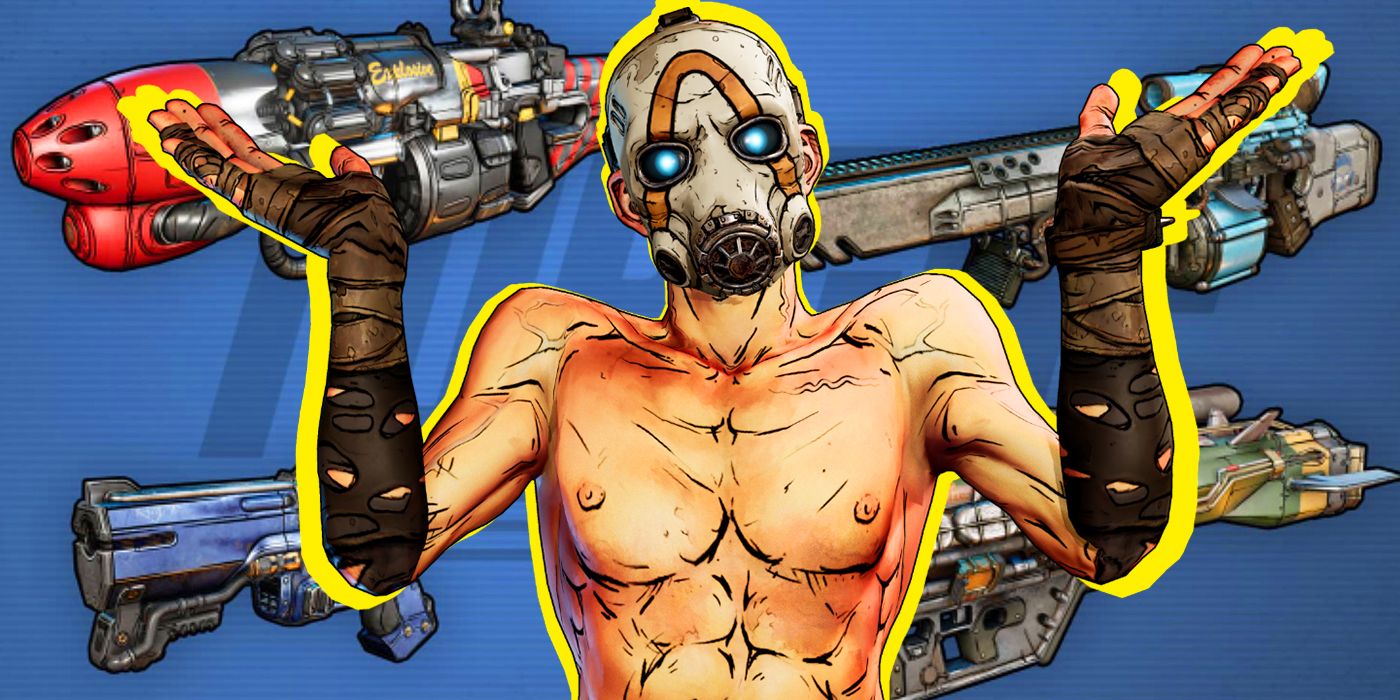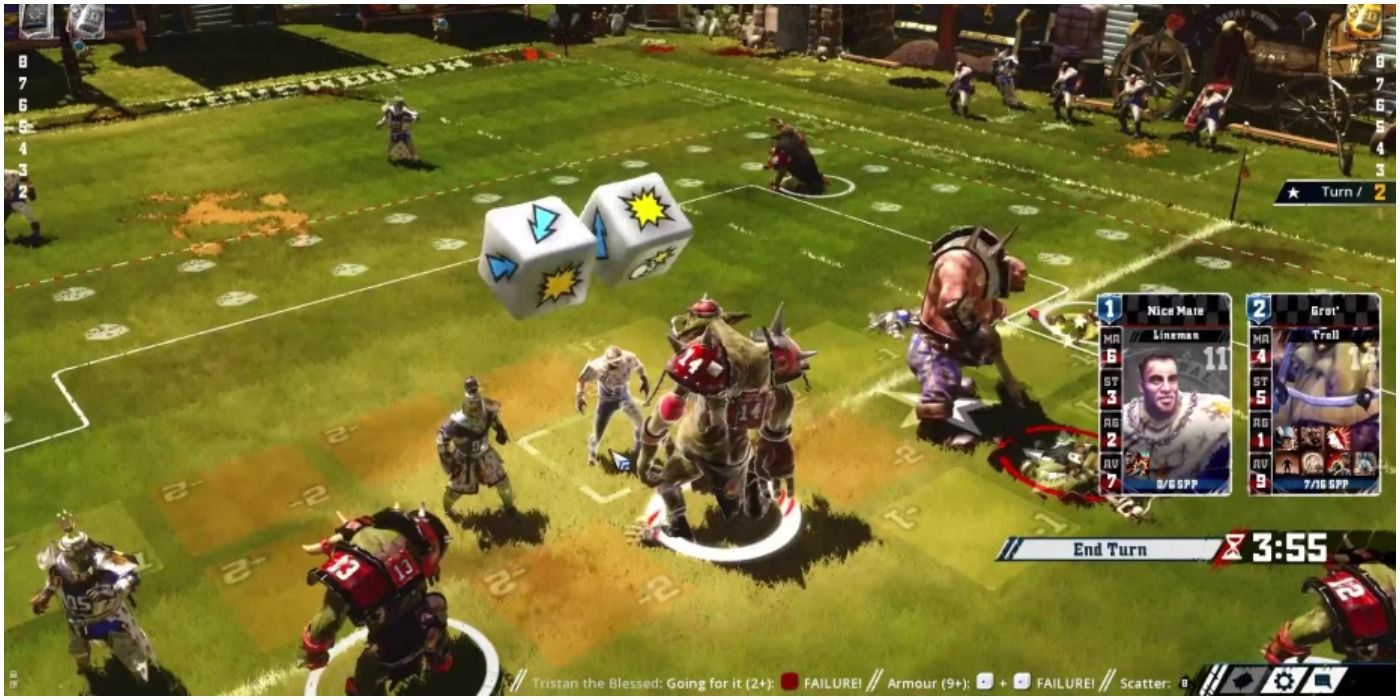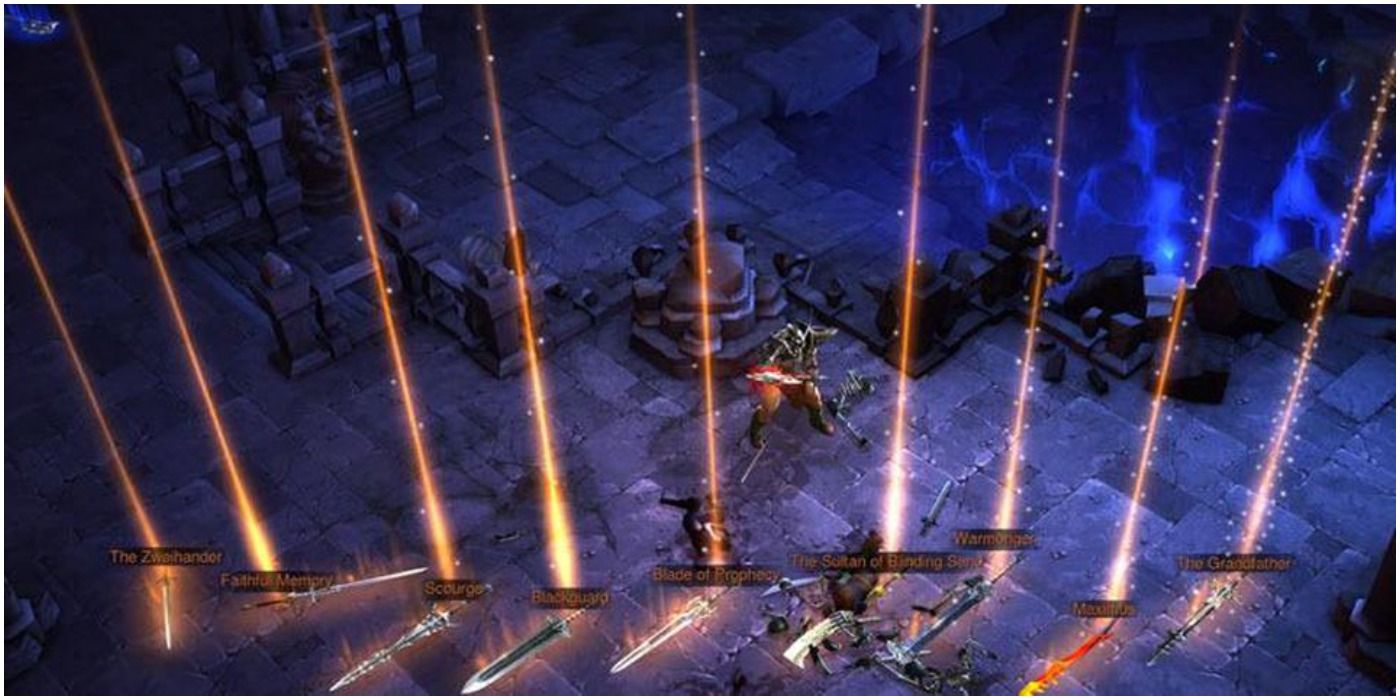Games have used random number generators (RNG) as a mechanic for decades. It's a process that randomly decides how an action in a game plays out. It's responsible for any type of in game outcome, from deciding how much damage an enemy takes to what kinds of loot drops. Players have often bemoaned the idea of RNG, and for good reason. Games using RNG, like Diablo or Borderlands, show that randomization is hit or miss in games.
For a good use of the RNG mechanic, Blood Bowl II comes to mind. Being based on a board game, this is a game where randomization was going to be present, so it's a good thing the developers got it right. The use of RNG is twofold: the game rolls dice to decide what happens when enemy team members are attacked and when players dodge out of enemy proximity. The randomization decides whether players knock their own guy out by accident or whether he deftly evades an enemy, and the game includes ways to help the odds be more positive, which is a fantastic way to do RNG if a game needs to have it.
Placing a team member in front of an opposing one will make dice appear on screen. Though the roll results are completely random, the game has ways to improve the random occurrence. The game takes the team member's strength into account when calculating and will color the die red to warn that action may not be a good idea or might have two dice if the player's strength is more than the enemy member's. Similarly, when dodging out of tackle zones, a box with a percentage number will appear, which estimates how likely the action is to succeed. A red low number usually indicates failure will happen, but even actions with a good chance to succeed could still fail.
Ace Team and Atlus' Rock of Ages II: Bigger and Boulder also handles RNG very well, though it doesn't use it much. Enemy behavior is determined randomly, and players will find that some enemy's reaction speeds are random, so strategies require hoping the AI isn't too good at their job. Damage output is randomized via speed; the faster the player's boulder goes, the more damage they'll do, but there's no true set number for how much will be done.
The AI RNG in Rock of Ages II: Bigger and Boulder has a good range. Some opponents might be very slow and clumsy, constantly dropping their boulder off the level, so players can take their time setting things up once they notice. On the other hand, sometimes the AI decides to be very smart and quick about their actions, so the player needs to be quick and precise to fight back. It's impossible to tell what side the computer will be on when going in, but players will quickly sort it out once in-game.
Randomization can also go wrong, which is what gives RNG such a bad reputation. Blizzard Entertainment's Diablo suffers from randomization the worst, using RNG for damage and loot. The game generates loot when enemies drop it or when a chest is opened. Ordinarily, players would find progressively better loot as they progress through a game, but Diablo often drops lower quality loot or even repeatedly drops the same piece of loot several times.
If bad loot generation wasn't enough, the game also uses randomization for fights. Taking or receiving damage is usually random, but here, players can never tell how much damage they give or take, and it randomly fluctuates with their level in-game. It's not a set amount, which can lead to situations where one confronts a monster, only for it to kill the character easily. In a game about fighting monsters to progress, an RNG system like in Final Fantasy may have worked better.
Gearbox's Borderlands suffers from the same problems Blizzard ran into. Different guns will have all sorts of damage modifiers, making it hard to determine the base damage level. Loot problems also persist. Although good weapons can be found when defeating a boss or big enemy, many chests or enemy drops are full of low level or not so useful weaponry. RNG like this is hard to get used to, and for some, it just ruins the experience when so much is left to chance.
Randomization in games can be a blessing or a bane. It can provide interesting new gameplay avenues if done well. They can make players more strategic. On the other hand, it becomes simply a hindrance when done the wrong way and can ruin the experience for even the most dedicated fans.



